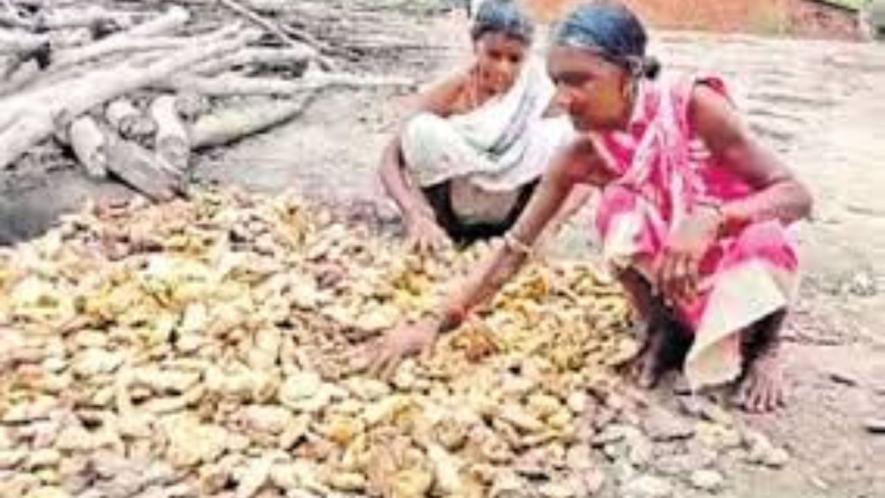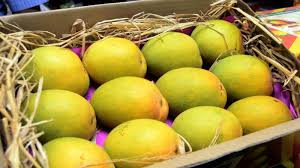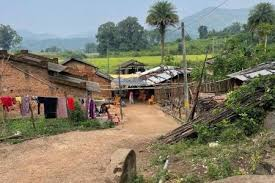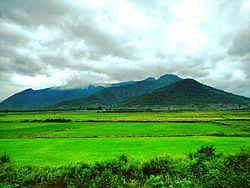Ghost of Kernel Revisits Odisha’s Kandhamal at Bitter Cost of Hunger

Rows of mud-clad houses on either the side of a small hamlet couched in the lap of green hills, virtually crowning the habitat, hardly revealed the hide heart wrenching realities of the people who inhabit the area.
It was in 2001 when we visited the areas in Kashipur block in Rayagada district of Odisha. The entire area was bathed in gloom.
Mango kernel poisoning after consumption of gruel had killed 24 people, and it can well be said that hunger had forced them to such a diet in 2001.
Incidentally, mango kernel consumption is a traditional practice among the region's tribals, especially during the lean period from September to December. It is a desperate measure to deal with hunger during extreme poverty.
In Nothing much seems to have changed since then. In 2024, a good 23 years later, a similar incident leading to loss of lives is making news.
In his little over five months of rule, the “double engine” Bharatiya Janata Party (BJP) government in Odisha, led by Mohan Charan Majhi, has had a few brushes with political pessimism.
On November 1 this year, eight persons(women) fell victim to mango kernel poisoning, while two women died.
In Odisha, the consumption of mango kernels was linked to food poisoning and death in August 2001. That time, the news had crossed boundaries and drew national and international attention, although for the wrong reason.
The National Human Rights Commission (NHRC) had investigated the incident and had found that the kernels were contaminated by fungus, causing food poisoning.

This happened on multiple occasions in the same district. Deaths have been reported in Kashipur, in Rayagada district in 1987, 1995 and 2001 due to consumption of gruel made from mango kernels.
Hunger Knows no Boundaries
The most recent incident in which two women, out of eight, died after consuming mango kernel gruel is a horrific reminder of the 2001 tragedy.
This time it happened in Mandipanka village of Daringbadi block in Kandhamal district.
Two 28-year-old women, Rumita Pattamajhi Majhi and Runu Majhi, who is differently-abled, died while six other women of Mandipanka village of Daringbadi block were hospitalised in Berhampur and Cuttack, after consuming mango kernel.
The incident has sparked political outrage with the opposition Biju Janata Dal (BJD) and Congress using it as a weapon to pin down the Majhi regime in Odisha.
In a mocking dismissal of the claims by the saffron regime’s ‘Sabka Sath, Sabka Vikash’ (Development for All), the BJD chief and former Chief Minister Naveen Patnaik said that under the present rule (BJP), the public distribution system or PDS had “miserably failed”, He alleged that in many areas, the distribution of rice has been suspended for over two months for reasons not known, including in Kandhamal.
“The BJD had accorded top priority to food security aspects, which have gone awry since the past five months, thus exposing the utter disregard by the BJP’s rule in the state”, Patnaik told the media.
The tragedy raises two key questions: Was the PDS operative in the area? Second, what about job creation for the impoverished lot?
More recently, lab reports confirmed that gruel made from mango kernels can become toxic if kept for more than a day. The Director of Public Health in Odisha stated that those who consumed the gruel on the first day were fine, but it became toxic when consumed two days later.
“The lab reports have confirmed our suspicions. Food must be consumed immediately as keeping it for extended periods is dangerous”, the Director of Health told the media.
The state government has ordered the Revenue Divisional Commissioner to probe the matter.
Meanwhile, the Opposition has upped the ante saying that people were being deprived of their right to food under the National Food Security Act (NFSA).
Contrary to the denials issued by the district administration, the relatives of the deceased have alleged that they had not been receiving free ration under the PDS for a long time, and hence the women were forced to consume the gruel due to lack of rice.
Local people claimed that they last received their quota of 15 kg of rice for three months from July to September under the NFSA (under which 5 kg free foodgrain is given monthly to each member of poor families) in July, and that its next instalment, which was scheduled to be released in October for the period October to December, was released only in November.
Fact-Finding Report
While an official probe has been ordered, a two-member team from an NGO, Ganatantrik Adhikar Surakhya Sangathan (GASS), Odisha, visited Mandipanka village in Gadapur panchayat under Daringbadi block.
The team interacted with many in the villages, the victims’ families, the local political representatives and the Block Development officer (BDO).
They met Prabhati Pattamajhi, Susana Pattamajhi, and Jibanti Pattamajhi, who had returned from Brahmapur after treatment. These three individuals, along with five others, said they had not received any payments under the Subhadra Scheme, the most trumpeted scheme for women by the present dispensation in Odisha.

They alleged that no one in the entire Mandipanka village had received any benefits from the Subhadra Scheme. Prabhati's husband, Taran Pattamajhi, belongs to the Kandha community. Taran said he received only Rs 5,000 as the first instalment of the Kalia Scheme, which was not received by the other seven families. He had worked in Kerala as a daily labourer and returned after hearing about the tragic incident. Jibanti’s husband also worked in Kerala but can no longer go back due to old age.
The team also find a shocking fact that no one had received a house under the Prime Minister's Housing Scheme.
Some families said they had cultivated paddy and maize on their non-irrigated land.
Taran said he had taken a loan from a moneylender in Brahmani Gaon village at an interest rate of 36% per annum for maize cultivation.
The villagers informed the GASS team that between August and December every year, their foodgrain supplies run out. With no ration supply, hunger was becoming a problem.
Kernel as an Alternative
To meet their food needs during this period, villagers collect and store mango kernels. They keep the kernels above firewood flames (chullah) to prevent spoilage from fungus. When the stock of rice and other grains depletes, they prepare kernel gruel for consumption. The hard outer part is crushed to collect the soft inner part, which is ground into a fine dust, wrapped in cloth, and soaked in water for 12 hours. The soaked kernel dust is then boiled and made into a gruel at least till December.
That day (on November 1) the wet kernel dust was full of fungus. The eight women of Mandipanka village consumed the contaminated kernel, believing that frying it would neutralise its harmful effects. But that did not happen and the tragedy occurred.
State government officials argue that it is nutritious food. If so, why isn’t it included in the balanced diet or nutrition charts in schoolbooks, alongside rice, pulses, eggs, and greens? Questions a GASS member.

It is true that both tribal and Dalit communities collect mango kernels and discard any leftovers when new grain arrives. Does anyone throw away any other type of food surplus? the report asks.
Mandipanka village has about 300 houses, primarily inhabited by tribal and Dalit families. Village boys and girls start migrating to Kerala at the age of 14 or 15. Currently, around 300 children from the village are in Kerala.
Earlier, the villagers used to collect Siali leaves (Bauhinia vahlii) from the forest and sell them at reasonable prices through regional cooperatives. Due to the collusion of businessmen and politicians, the cooperatives have shut down, depriving the villagers of fair prices for Siali leaves and other forest products. That income has nearly come to an end.
The writer is a freelancer based in Odisha.
Get the latest reports & analysis with people's perspective on Protests, movements & deep analytical videos, discussions of the current affairs in your Telegram app. Subscribe to NewsClick's Telegram channel & get Real-Time updates on stories, as they get published on our website.























